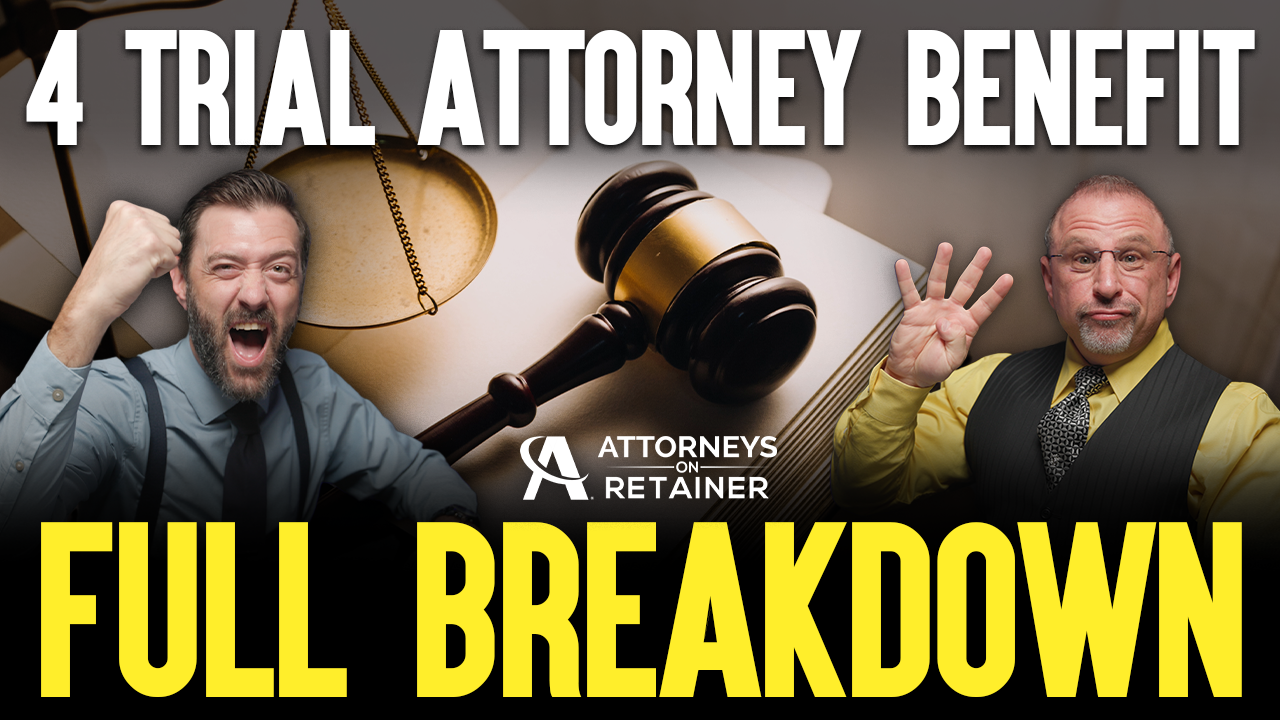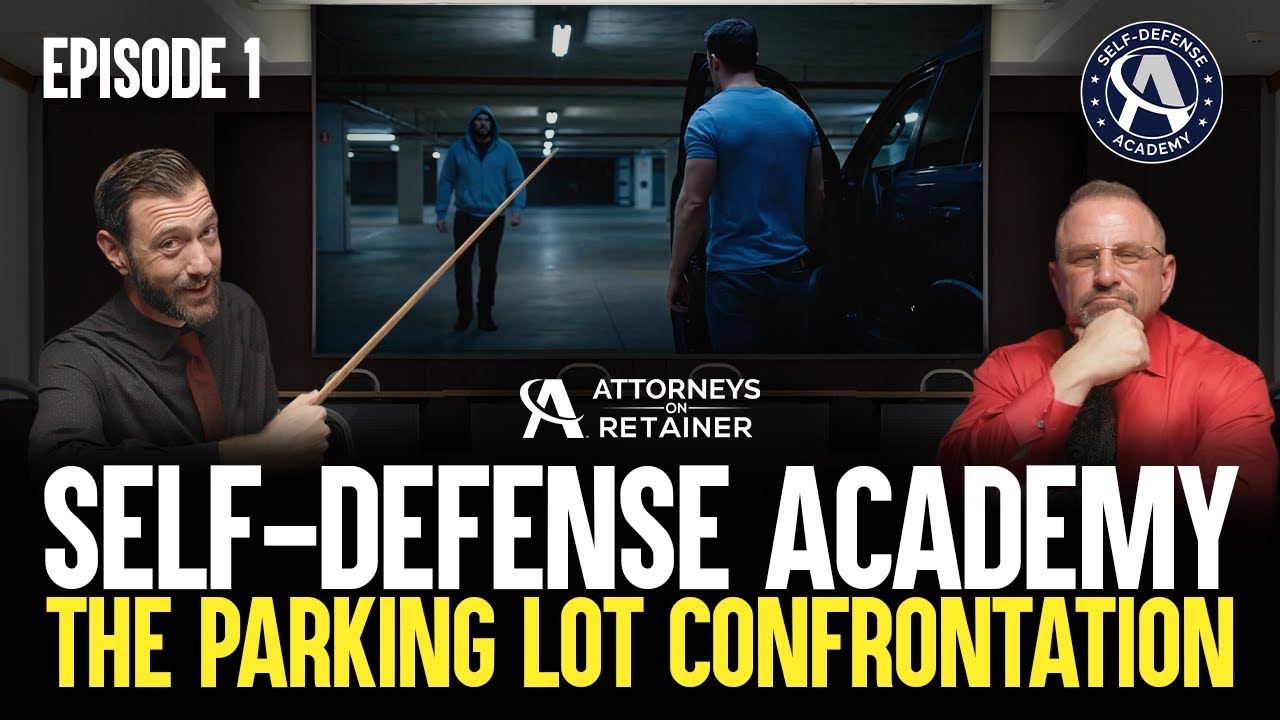Fighting The State: Pre-charge - What Happens Before You’re Charged?
April 16, 2024
If you have recently been involved in a self-defense incident and are now under investigation by local law enforcement, this information will be highly beneficial to you. The period between the incident and any potential charges is known as the pre-charge phase. During this critical time, it is essential for you to take proactive steps and secure legal representation.
Key Points:
- Understanding the Pre-Charge Phase
- Initial Steps and Legal Representation
- Investigation and Evidence Collection
- Communicating with the Prosecutor
- The Twin Goals of Pre-Charge Representation
- Mitigation Specialists and Bondsmen Preparation
- Utilizing a Proffer Agreement
- Late Night Freedom Fights
- The Importance of Early Legal Action
- The Importance of Completing Your Emergency Contact Form
Understanding the Pre-Charge Phase
When something occurs that might lead to someone being charged with a crime, like a self-defense incident, that is when the pre-charge phase begins. People often contact lawyers at this point, especially if they think the police are involved or if the police responded to the incident. The pre-charge phase can include different situations, such as:
-
Active Investigations: This means the police are still looking for clues and deciding if they should arrest someone.
-
Post-Incident Concerns: Sometimes, after an incident, people worry about whether the police will get involved. Because of this uncertainty, they often seek legal advice just to be safe.
-
Immediate Arrests: When someone is arrested right away, the pre-charge phase means dealing with the immediate effects and deciding what charges might be brought against them.
“It is not uncommon that somebody will call our firm and say, ‘I got a call from Detective so-and-so at the police department, and before I call the person back, I thought I would call you guys.”
Initial Steps and Legal Representation
When someone contacts our law firm before they are officially charged with a crime, the first thing our attorneys do is notify the state that we are representing the client.
-
Determining Jurisdiction: It is important to figure out if the case is handled by the state or the federal government because it changes how our attorneys will work on it.
-
Notification to Law Enforcement: A letter of representation is sent to the police departments and agencies that are part of the case.
This is important because we want government agencies to contact our attorneys and not our clients.
Investigation and Evidence Collection
Our attorneys start working immediately to collect evidence and build a solid defense for our client, even before any charges are officially made. We do this to prepare the best possible case and protect our client’s rights from the very beginning. This includes:
-
Private Investigations: Hiring investigators to collect evidence, interview witnesses, and preserve critical information.
-
Expert Consultations: Engaging experts, such as use-of-force specialists or psychologists, to provide professional insights that could be pivotal in the case.
-
Preservation Letters: Sending letters to ensure that crucial evidence, like surveillance footage, is not destroyed.
-
Obtaining Police Reports: Gathering police reports, which can provide detailed accounts of the incident from law enforcement’s perspective and are essential for understanding the case against the client.
Communicating with the Prosecutor
A key part of our legal strategy before any charges are filed is talking to the prosecutor who decides whether to bring charges. This is important because it gives our attorneys a chance to explain why our client should not be charged. We might show evidence or talk about reasons that could help avoid charges altogether. This involves:
-
Providing Exculpatory Information: Sharing evidence and information that supports the client’s innocence or mitigates their involvement.
-
Negotiating Pre-Indictment Pleas: In some cases, it might be possible to negotiate a plea deal before formal charges are filed, potentially avoiding more serious charges, and simplifying the legal process.
“Goal number one: let us do everything that we can do to see if we can convince that prosecutor not to bring charges, or if they are going to bring charges, maybe we can get them to bring lower charges.”
The Twin Goals of Pre-Charge Representation
During the pre-charge phase, our attorneys work toward two main goals: stopping charges from being filed and getting prepared for charges if they are brought.
-
Preventing Charges: Trying to convince the prosecutor not to press charges involves a few important steps. First, we show any evidence that proves our client did not commit the crime. Next, we point out any weaknesses or problems in the prosecutor’s case. Finally, we discuss and try to agree on possible solutions before any charges are officially made.
-
Preparing for the Worst: If we cannot prevent the charges from being brought, then we prepare to defend our client’s rights in the criminal case. This means collecting any evidence that can help our case, getting ready for court dates, and making sure to use all legal options to lessen the consequences for our clients.
Mitigation Specialists and Bondsmen Preparation
Two important steps before our clients are officially charged with a crime are working with mitigation specialists and preparing with a bondsman. Mitigation specialists are experts who help gather information about our client accused of a crime. A bondsman is someone who helps our clients get out of jail by paying their bail. By working with both professionals, our clients can better prepare for the case and increase their chances of a fair outcome.
-
Mitigation Specialists: These professionals help create a detailed view of our client’s background and situation, which can affect their case. They collect information about our client’s character, work history, connections in the community, and other positive factors. This information is especially useful when negotiating plea deals and potentially during sentencing if the case gets to that point.
-
Preparing with a Bondsman: If you think you might get arrested, it is important to be prepared to use a Bondsman. This means having a bond screening to figure out how much money you can pay to get out of jail. Knowing this amount in advance can be helpful during our first court appearance and can limit the amount of time clients spend in jail.
Utilizing a Proffer Agreement
Sometimes, it can be helpful for our client to make a deal called a Proffer Agreement, or “King for a Day” agreement. This is a deal between our client and the prosecutor. Our client agrees to share information with the state, and in return, the state promises not to use that information against our client in a later criminal case. This agreement allows our client to talk openly to the prosecutor about their involvement or the details of the incident. This is an opportunity for the state to get useful and vital information about the incident or crime that could change the direction of the investigation. This is useful for the State because they did not have this information before our client.
Late Night Freedom Fights
Another unique service offered by our law firm is what we call “Late Night Freedom Fights.” This involves our attorneys being available at all hours to respond to emergency situations, such as unexpected arrests in the middle of the night. Our attorneys can rush to the scene or a late-night court session, fully prepared with motions and strategies to secure our client’s release as quickly as possible. These efforts ensure that our client’s rights are protected and give our clients the best possible shot of spending the least amount of time in custody.
The Importance of Early Legal Action
Acting early, even before being officially charged, can affect the case’s result. We recommend contacting us as soon as you think you might be charged with a crime. By acting quickly and working with our law firm, our clients can improve their chances of a good result. Our legal team at Attorneys For Freedom offers full support during this period, making sure clients are ready and have a strong defense from the beginning.
Doing this early can help in the following ways:
-
Avoid Formal Charges: By presenting evidence that shows your innocence and negotiating with the prosecutor.
-
Prepare for Potential Arrests: Ensuring that all necessary steps are taken to minimize the impact of an arrest, including arranging bail and preparing for initial court appearances.
The Importance of Completing Your Emergency Contact Form
If you are part of The Attorneys On Retainer Program, it is important to fill out your emergency contact form. This form gives our attorneys the valuable information they need to help you quickly if something goes wrong. When our attorneys have this necessary information right away, they can start working on your case immediately, which means they can help you faster and more efficiently. If you do not fill out the form, it might take longer to gather the necessary details. Completing the emergency contact form is a straightforward way for you to ensure our legal team is ready to assist you, immediately, at any time.
Our AOR Program focuses on helping clients involved in self-defense cases, providing experienced lawyers who will fight for their rights. Join our program today to get the support you need. To learn more about our Attorneys On Retainer Program, please call 866-404-5112 to contact us today.



